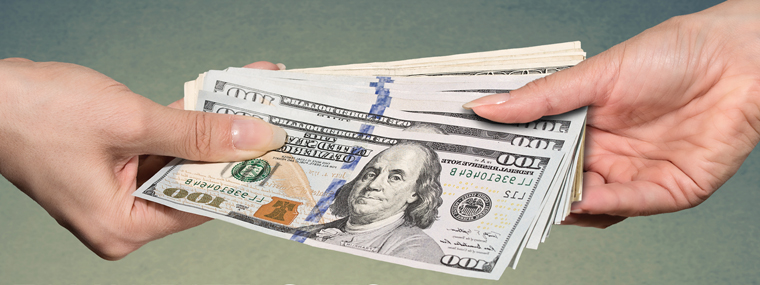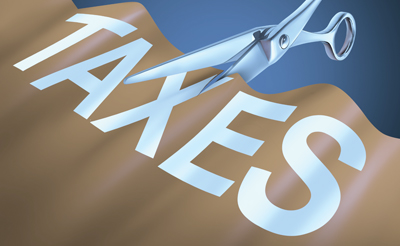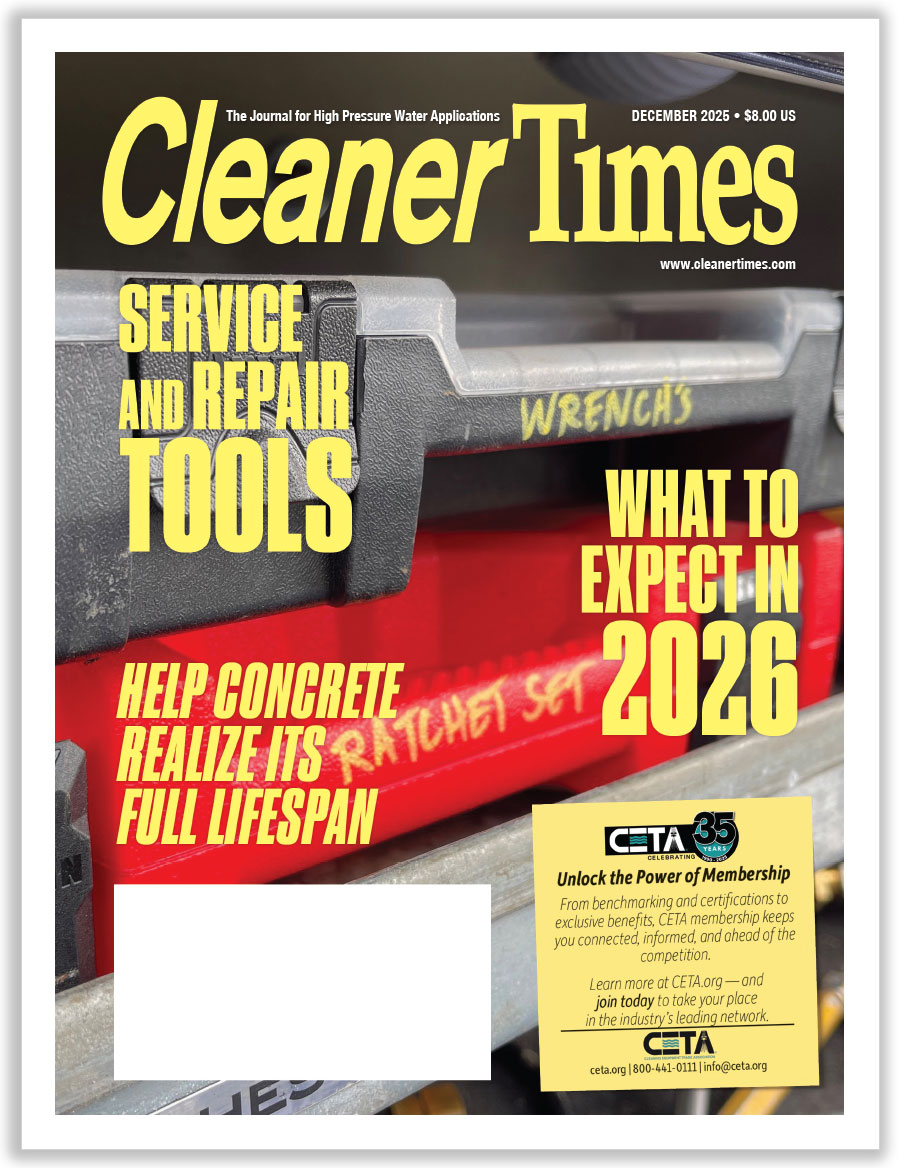
Tax Write-Offs for Conventions After TCJA
By Mark E. Battersby / Published June 2018

Industry events such as the Power Washing & Window Cleaning Convention in August or the PWNA National Trade Show and Convention in October are a good way to gain know-how, fuel the attendees’ professional ambitions, find new suppliers, and network with others in the industry. Best of all, Uncle Sam, in the form of our tax laws, is willing to pick up the expense of attending—at least for some.
Bottom line, the pressure cleaning business can deduct all non-extravagant “ordinary and necessary expenses” for attending business-related meetings, conferences, shows, and other events. With certain limits, allowable expenses include travel, lodging, meals, and associated out-of-pocket costs.
Unfortunately, many deductions for show attendance previously claimed on the personal tax returns of attendees were temporarily suspended by last December’s Tax Cuts and Jobs Act (TCJA), the same bill that put a bigger crimp in the meals and entertainment deductions.
Reform Meals and Entertainment
The TCJA eliminated, at least until 2026, some personal itemized deductions. Targeted were miscellaneous itemized deductions subject to the former two percent floor. That means that unreimbursed employee business expenses (including expenses for travel, lodging, meals, entertainment, continuing education, and others) can no longer be claimed.
Fortunately, many of these deductions remain available for use by pressure cleaning businesses, including sole proprietorships. Although the TCJA isn’t too clear on deducting business meals, no deduction will be allowed for entertainment.
Under the new law, entertainment is no longer deductible, but no change will be made to the 50 percent deduction for business meals; and the 100 percent deduction for expenses incurred for recreational, social, or similar activities primarily for the benefit of employees will remain.
Travel, Meals, and Entertainment
Although the TCJA appears to have wiped out many show-attendance expense deductions, some remain, at least for a pressure washing business. If, for example, business is conducted during the meal, a deduction may be available. And that deduction for 50 percent of the cost of meals incurred while traveling away from home on business is still possible.
Not too surprisingly, the rules in this area contain quite a few gray areas. If, for instance, the business foots the bill to take employees to a conference, the full amount of their meals is deductible by the pressure washing business. The 50 percent rule applies only to the business owner.
If, on the other hand, a meal immediately precedes or follows a substantial business meeting, 50 percent of the cost can be deducted—so long as it was not “lavish or extravagant.”
If, for instance, a pressure washing supplier or business provides meals in a hospitality suite at a convention with the clear intent of generating business, the cost is usually deductible. Other meals, outside, that were paid for purely for goodwill purposes, may not qualify as “directly related” to the business. Under the TCJA, meals during business travel and meals at a seminar or conference are 50 percent deductible.
Mixing Business and Pleasure
In general, taking several extra days for a mini-vacation won’t result in the loss of the show-attendance deduction. The tax rules permit a deduction for the total travel costs when the main purpose of the trip is attending a convention, trade show, or conference.
Of course, when combining a vacation or side-trip with convention attendance, a good rule is to spend more days on business than on pleasure. Lodging expenses cannot be deducted for personal days, but purchasing a reduced-fare ticket requiring stay-over days means lodging costs for stay-over days is permissible.
When mixing business with pleasure, round-trip travel is fully deductible if more days are spent on business than on pleasure. Days spent traveling are usually considered business days.
When traveling by car, the standard mileage deduction for the year of travel can be used. The standard rate for use of a car, van, or pick-up is up a penny from 2017 to 54.5 cents per mile for business travel.
Friends, Family, and Others
When friends, family, or other guests accompany an attendee to a trade show, convention, or conference, only the business-related portion of the expenses can be deducted. In other words, deducting the cost of the family’s hotel suite is a no-no. Instead, deduct the cost of a single room.
If a bona fide business purpose exists for the individual’s presence and can be proven, a tax deduction might result. Incidental services, such as keeping notes or assisting in entertaining customers, are not enough to make the expenses deductible. Generally, the travel expenses of someone accompanying an attendee can be deducted if that person qualifies in one of the following ways:
- Is an employee of the business
- Has a bona fide business purpose for the travel, and
- Would otherwise have been allowed to deduct the travel expenses.
Convention Types
Anyone clearing the hurdles created by our lawmakers, with the proof to support it, may be able to deduct the entire cost of the convention, show, or conference trip (subject to the usual 50 percent limit on meals and entertainment) and minus any personal expenses incurred. However, the rules are tighter if the event is held outside the North American area or on a cruise ship.
Foreign Conventions: In order to deduct the expense of attending a trade show or convention held outside the North American area, the pressure cleaning business must show that the event is directly related to the active conduct of the operation, and it is as reasonable for the event to be held outside the North American area as it is to hold it within the North American area.
Cruise Ship Conventions: In order to deduct a cruise ship convention, meeting, or other event, even more stringent rules exist. First, the cruise ship must be a U.S.-registered vessel. Next, the ship must make all of its ports of call in the U.S. or U.S. possessions.
Finally, the tax law limits cruise ship convention deductions to only $2,000 per year. And, don’t forget to include a signed statement stating the total days spent on the ship and how many hours were devoted to business each day. Another statement is also required, this one from an officer of the sponsoring group or organization confirming both the scheduled activities and the attendance of the participant.
Other Taxing Jurisdictions
Just like athletes and entertainers, all business travelers should be aware that even working in one place for a short period of time can incur a local income tax bill. Some state tax return filing thresholds are based on the number of days “worked” in the state, while other taxing jurisdictions may base the non-resident taxes on the wages earned locally.
Those Dreaded Receipts
While receipts for expenses of $75 or less are not required, when attending a show, meeting, or conference, a copy of all charges, as well as a copy of the convention schedule/agenda, can help prove it is relevant to the business. Although keeping receipts may not be required, it doesn’t hurt to do so.
In fact, whenever business expenses are claimed, it’s usually a good idea to keep detailed records and receipts for everything. They often serve as a reminder of a deductible expense, especially where the payment was in cash.

Also keep in mind that while there is no overall dollar limit on the amount that can be deducted for the expenses incurred attending a trade show, costs that are “lavish and extravagant” cannot be deducted. What’s more, everyone is limited to a deduction of only 50 percent of the cost of meals.
To recap, as with the travel and lodging expenses of other business trips, the primary reason for attending must be business-related in order to qualify for deductions. When it comes to events for investment, political, social, or other purposes unrelated to business, only a limited expense deduction may be available. If the trip is strictly a disguised vacation, business travel expenses cannot be deducted. However, that 50 percent deduction for business-related meal expenses may be permitted.
Discussing business with a current or potential client or customer over a meal or drinks has long been an accepted business practice—and a tax-deductible expense. With the TCJA no longer allowing deductions for many common business expenses that would qualify as entertainment, the American Institute of Certified Public Accountants (AICPA) has found it necessary to ask the IRS for guidance.
The AICPA has asked the IRS for “definite assurance” that business-meal deductions are not limited under the new tax law. The AICPA specifically requests the IRS to confirm that meals taking place between a business owner or employee and a current or prospective client that aren’t lavish, and that give the taxpayer a reasonable expectation of income or business benefits, will be allowed. They also ask that business meals charged while a taxpayer or employee of the taxpayer attends an entertainment event remain 50 percent deductible.
Additional guidance is available from the IRS in “Publication 463: Travel, Entertainment, Gift, and Car Expenses.” A copy of this publication is available at www.irs.gov/formspubs. The owner or manager of any pressure cleaning business needing additional help with this most confusing area of our tax rules should seek professional advice.





